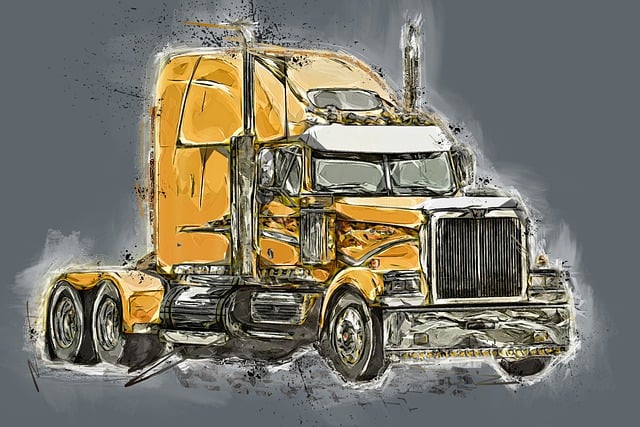Vehicle Identification Numbers (VINs) are crucial for ensuring safety and compliance in the trucking industry. Decoding these 17-character codes provides insights into a truck's history, specifications, accident records, and recall programs. VIN searches empower stakeholders to make informed decisions, identify potential hazards, and maintain safe fleets, as highlighted by recent recalls like General Motors'. Regular VIN monitoring is essential for adhering to safety regulations, enhancing operational efficiency, and preventing accidents.
Embarking on a Truck VIN Number Search is an indispensable practice for anyone navigating the commercial trucking industry. By deciphering this unique identifier, stakeholders gain access to crucial details such as make, model, engine type, and more. Recent events, like General Motors’ recall of nearly half a million vehicles due to safety defects, underscore the importance of thorough VIN searches in ensuring vehicle safety and compliance with regulatory standards. This article delves into the intricacies of truck VIN numbers, exploring their power in safety compliance, recent recalls, and best practices for streamlining acquisition, ultimately guiding stakeholders toward informed decision-making.
- Understanding Truck VIN Numbers: Unlocking Essential Data
- The Power of VIN Search for Safety Compliance
- Recent Recalls: Emphasizing VIN's Role in Risk Mitigation
- Deciphering VIN Components: Make, Model, and More
- Streamlining Acquisition: VIN Search Best Practices
- Case Study: How VIN Search Aids in Vehicle Selection
- Future-Proofing Fleet: Continuous VIN Monitoring
Understanding Truck VIN Numbers: Unlocking Essential Data
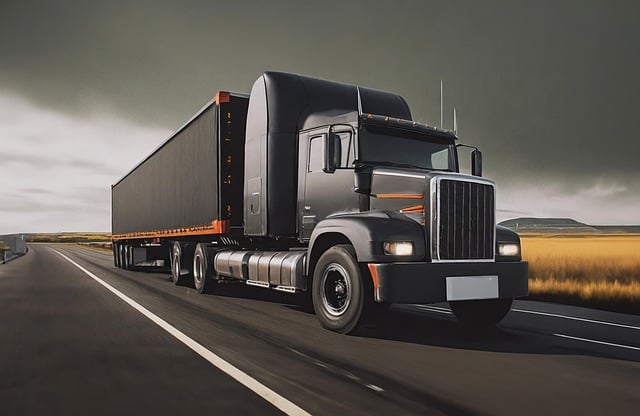
Truck VIN numbers are unique identifiers that serve as a window into the truck’s history and specifications. Each vehicle has its own distinct 17-character code, encompassing letters and numbers, providing a wealth of information to those who know how to interpret it. This data includes the manufacturer, model year, production plant, and various technical details. By decoding this code, stakeholders can uncover crucial facts about the truck’s origin, maintenance records, accident history, and more.
For instance, a simple VIN search can reveal whether a truck has been involved in past accidents, undergone significant repairs, or even if it’s part of a manufacturer’s recall program. This transparency is vital for fleet managers, buyers, and sellers to make safe and informed choices. With the right tools, they can ensure that their vehicles meet safety standards, avoid potential risks, and maintain optimal performance on the road.
The Power of VIN Search for Safety Compliance

A Vehicle Identification Number (VIN) search is a powerful tool that plays a pivotal role in ensuring safety compliance within the trucking industry. By simply inputting the unique VIN, stakeholders can access a wealth of information about a vehicle’s history and specifications. This includes details on manufacturing date, assembly location, and various technical parameters, all of which are crucial for identifying potential safety hazards or recall issues. For instance, the recent General Motors recall highlights the significance of this process; without proper identification through VIN, addressing such defects could have led to severe consequences.
By conducting a thorough VIN search, trucking companies, fleet managers, and buyers can make data-driven decisions, ensuring that their vehicles meet the highest safety standards. This proactive approach allows for the timely removal of unsafe trucks from the road, thus protecting drivers, passengers, and other road users. Moreover, it enables stakeholders to stay informed about vehicle recalls, modifications, or any history of accidents, thereby fostering a culture of safety and accountability in the trucking sector.
Recent Recalls: Emphasizing VIN's Role in Risk Mitigation
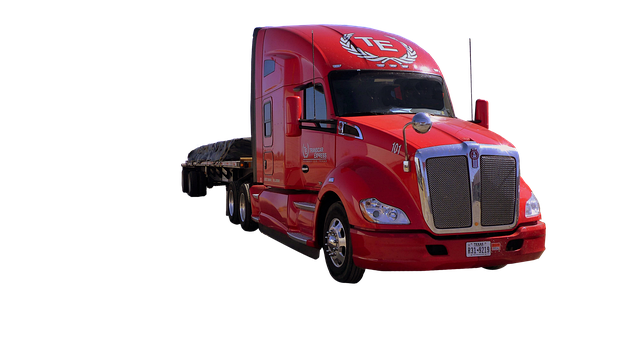
In recent years, numerous recalls have underscored the critical role that Vehicle Identification Numbers (VIN) play in mitigating risks within the trucking industry. One notable example is General Motors’ recall of nearly 462,000 diesel-powered pickup trucks and large SUVs due to a defect affecting the rear wheels. This defect could cause them to lock up unexpectedly, posing a serious safety hazard and increasing the risk of crashes. A comprehensive VIN number search would have revealed this information early on, enabling stakeholders to take proactive measures and ensure that only safe vehicles enter their fleets.
By cross-referencing VINs against recall databases, trucking companies, dealers, and owners can identify affected vehicles promptly. This process is vital for maintaining compliance with safety regulations and protecting the well-being of drivers, passengers, and other road users. Moreover, it helps in making informed decisions about vehicle maintenance, repairs, and replacements, ultimately contributing to a more robust and safe commercial trucking ecosystem.
Deciphering VIN Components: Make, Model, and More

A Vehicle Identification Number (VIN) is like a unique fingerprint for each vehicle, providing a wealth of information in its 17-character code. Deciphering this code allows stakeholders to understand key aspects of a truck’s history and specifications. The first three characters represent the manufacturer and model year, offering an initial glimpse into the vehicle’s identity. For instance, “ABC” could indicate a specific brand, while “123” might pinpoint the model and production year.
The subsequent characters provide even more detailed insights. These include the production plant code, body type, engine type, and transmission details. For example, a “Z” in the VIN might denote a particular engine variant known for its power output, while certain sequences of numbers could reveal the presence of advanced safety features or specific customer-requested options. This level of specificity ensures that buyers can accurately assess a truck’s capabilities and condition before making a significant investment.
Streamlining Acquisition: VIN Search Best Practices

Performing a VIN number search is an essential best practice for streamlining acquisition in the commercial trucking industry. It’s more than just a technical exercise; it empowers stakeholders to make data-driven decisions, ensuring that each vehicle acquired aligns with safety, performance, and regulatory standards. By cross-referencing the unique identifier against comprehensive databases, buyer can uncover crucial information such as original manufacture date, service history, accident reports, and recall statuses, among other details.
This proactive approach minimizes risks associated with unknown or hidden issues in used trucks. It allows buyers to identify potential red flags early on, ultimately saving time, money, and most importantly, safeguarding drivers and road users from hazardous situations. Embracing VIN search best practices is a strategic move that fosters transparency, enhances safety, and contributes to the overall efficiency of trucking operations.
Case Study: How VIN Search Aids in Vehicle Selection
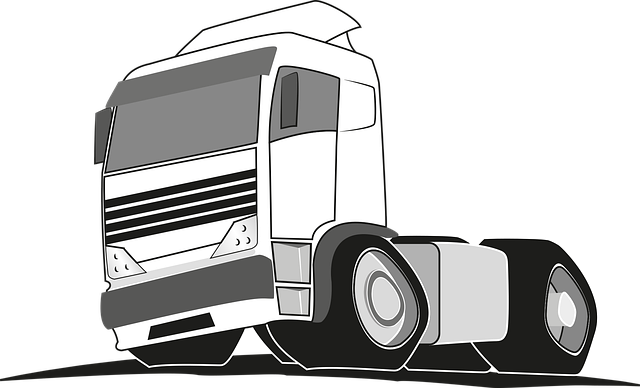
A recent example illustrates the invaluable role a VIN search plays in the trucking industry. Imagine a company seeking to expand its fleet, facing the daunting task of choosing among various makes and models. Without proper scrutiny, they might inadvertently acquire vehicles with hidden issues or those failing to meet modern safety standards. However, through a comprehensive VIN search, this potential pitfall can be avoided.
By entering the unique VIN into an online database, the company uncovers crucial information about each truck’s history. This includes details on previous owners, maintenance records, and any reported accidents or recalls. For instance, in our case study, the search reveals that a seemingly appealing used truck was involved in a minor collision years ago, indicating potential structural damage. Armed with this knowledge, the company can make an informed decision, selecting safer and more reliable vehicles for their fleet, ultimately ensuring the well-being of their drivers and the roadworthiness of their trucks.
Future-Proofing Fleet: Continuous VIN Monitoring
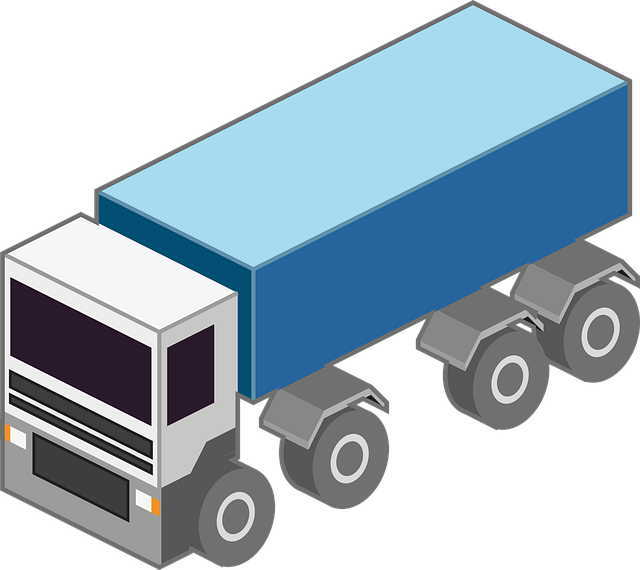
In today’s digital era, embracing technology for continuous Vehicle Identification Number (VIN) monitoring is a strategic move for fleet managers and trucking companies to future-proof their operations. By implementing advanced VIN tracking systems, businesses can maintain a real-time database of their entire fleet. This allows them to swiftly identify any issues or recalls associated with specific vehicles, ensuring prompt action and minimal disruption.
For instance, regular VIN monitoring enables fleets to stay ahead of safety regulations and recall notifications. As seen in recent events, such as the General Motors recall, immediate access to vehicle history through VIN search is crucial for preventing potential accidents and maintaining consumer trust. By integrating this practice into their standard operating procedures, trucking companies can enhance their operational efficiency, reduce costs related to repairs or replacements, and ultimately contribute to a safer transportation network.
Embarking on a Truck VIN Number Search is not just a best practice; it’s a critical step for ensuring safety, compliance, and informed decision-making within the commercial trucking industry. By leveraging this powerful tool, stakeholders can navigate the complex landscape of vehicle acquisition, mitigate risks associated with recalls, and future-proof their fleets. Understanding and utilizing VIN data is a testament to prioritizing both operational efficiency and passenger safety.
